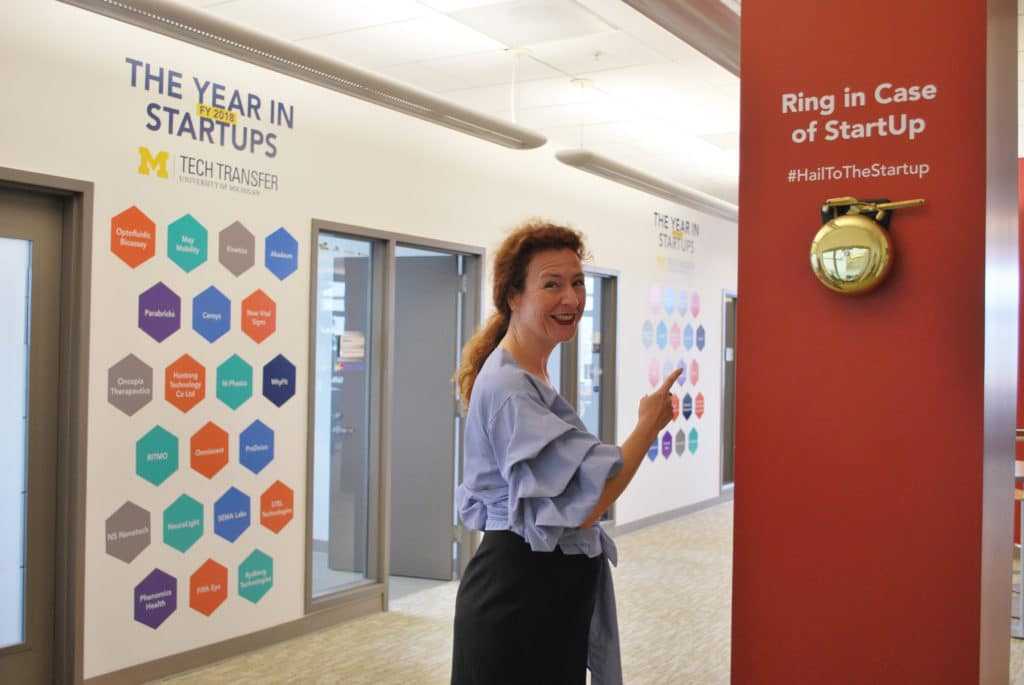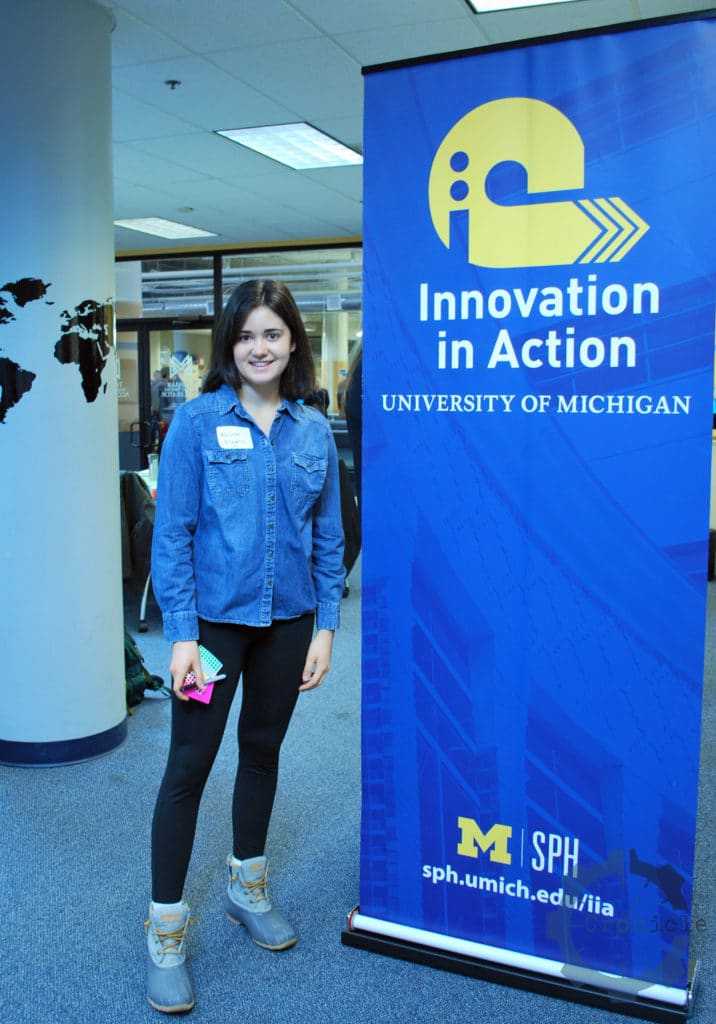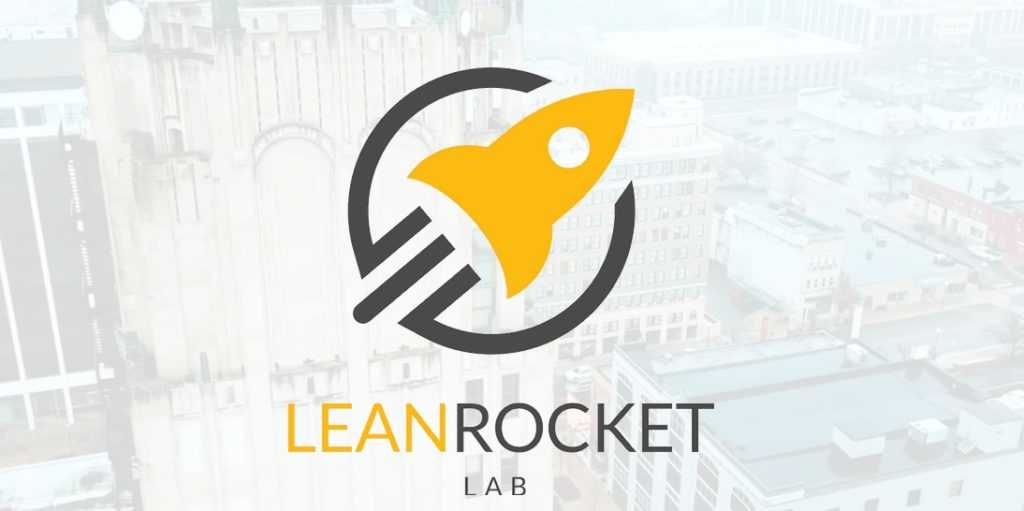Diane Bouis of the University of Michigan Office of TechTransfer connects startups at U of M with the tech community in Ann Arbor. Startup founders ring a bell every time a startup is launched from this incubator program.
How do you know when an incubator or accelerator program is right for your startup? They have a lot in common, but many new programs are branching off in different directions. Here are some questions to consider as you look at incubator and accelerator programs for your tech startup.
Tech Incubator vs. Accelerator: What's The Difference?
First up, what is a startup incubator, and what's the difference between an incubator and an accelerator program? Tech Republic ran this great article explaining the overlap and differences, but it boils down to this: an incubator is a program that helps you develop a business idea and launch a new startup into the world. A venture accelerator is a program that takes an existing business and helps it scale more quickly.
An incubator is a program that helps you develop a business idea and launch a new startup into the world. A venture accelerator is a program that takes an existing business and helps it scale more quickly.
Both incubators and accelerators can be invaluable help starting or growing a new business. They often offer some mix of mentorship, free rent on office space for several months to a year, and guidance through customer discovery or clinical trials and securing early funding. Who wouldn't want that kind of help through fragile early stages of building a company? But incubators and accelerators don't all work the same way. We've been pitched lately with everything from revenue sharing to rapid cycle business development processes and realized that there is a broadening landscape out there of what an incubator or accelerator offers. Here are some questions to consider when choosing if an incubator or accelerator is right for your startup.
Both incubators and accelerators can be invaluable help starting or growing a new business. They often offer some mix of mentorship, free rent on office space for several months to a year, and guidance through customer discovery or clinical trials and securing early funding.
Ross School of Business in Ann Arbor, which hosts a number of incubators and entrepreneurship programs.
What To Consider When Applying To Startup Incubators: Industry Focus & Culture
First up, the most important consideration is industry focus. Many incubators specialize in the industries common to their location. So in the Midwest, you'll find mobility startups in Automation Alley in Detroit, tech-enabled social impact startups in Detroit, agriculture tech in west Michigan, and software/security and life sciences in Ann Arbor.
What other startups has the incubator helped launch? Can you get referrals from past cohorts? What was their experience securing funding and working through the program? Incubators often have a more positive reputation for supporting founders than VCs, because their aim is to make a company a success without expecting as much benefit in return and they are often at least partially funded by state economic growth initiatives. But if a founder had a bad experience in an incubator, it's worth paying attention to what the problem was to avoid similar challenges.
Most companies lucky enough to land in an incubator are grateful for the support, as we've heard from multiple companies that went on to great success, such as Censys. There is no guarantee that a startup will thrive once out in the world, but incubators help founders get on a viable track.
The one exception to this might be student incubators/accelerators such as TechArb at the University of Michigan, where the process is more about teaching students how to start a business for the future, and their initial business may or may not succeed out in the business world. The expectations are a little different, and the programs are more emotionally supportive and educational to immerse students in the culture of business development, however stringent and realistic on what it takes to put together a diverse winning team.
Alison Elgass of the University of Michigan TechArb and Innovation In Action programs created a subscription box startup for safe sex supplies in 2019.
Varying Business Models with Incubator & Accelerator Programs
Desai Accelerator at the University of Michigan recently told us they have extended the length of stay for cohorts to offer them more support, which most startups would appreciate to save on office costs and glean as much guidance as possible while in the early stages. However, director Angela Kujava also told us the program is beginning a revenue sharing model. Does this work for your startup? It might, because it might involve longer term involvement and support from an incubator program. But as a founder you'll need to sort out whether that's right for you or whether you might be giving away too much revenue, depending on your situation.
Diane Bouise of TechTransfer at the University of Michigan, which helps spin out inventions and scientific discoveries from university faculty and researchers, told us during an interview last year that the TechTransfer program avoids revenue sharing models, but that's primarily because the program already gets a cut through licensing out technology and they don't want to double dip, which avoids exploitation. If you're considering an accelerator or incubator program for your startup, you may not have a choice where you end up if you're in a situation like being faculty at a university or working for a corporation that owns employee invention patents in the automotive industry. It's worth knowing when you have options and which models are common.
Is The Incubator Open To The Public?
We were recently pitched on two new startup incubators that were moving to Ann Arbor from the coasts. It sounds like a good plan in both cases, as southeast Michigan can use all the funding and mentorship it can get since the vast majority of startups here still have to bootstrap and find their own way without much support.
But one founder was concerned about creating a program that would be a success, to the point where they were collecting their first cohort by private recommendation rather than public application process to make sure the program was up and running before seeking any press. We're not sure how far the program is going to go before going public or if it will launch at all, which would be unfortunate because the community could use the additional programming. If you ask around your network, you may find similar opportunities in a place like Michigan where people want to make sure they have traction before publicizing what they're attempting to create, but they're hard to connect with without any press involved. This also opens the door to potential accusations of discrimination in selecting participants if the application process isn't public and accessible to all.
Inside the Ross School of Business at the University of Michigan, which houses the Desai Accelerator, programs for entrepreneurship, and entrepreneurs in residence.
The second program boasted about killing startup ideas before they had a chance to fail, to boost the chances of success. In Silicon Valley culture this makes a lot of sense, to rapid cycle through business ideas and launch the ones that capture proper funding. We want to be clear that all of these programs may work very well for you, and many of them offer life-changing opportunities for entrepreneurs, particularly if there is coastal funding and mentorship involved. However, know what you're signing up for. In a new program in this case launched out of Detroit, many folks limping out of the auto industry could be blacklisted and unemployed for an extended period of time if they have a startup on their resume at all, particularly a failed one. It isn't a pretty picture, but automotive culture is what it is. In that case, you need to know what you're getting into in terms of industry bias and culture, not the incubator program itself, which may be highly beneficial for your career. Last year we spoke with someone who shifted from automotive work to founding his own security consulting firm, and he told us that his colleagues were so concerned about him founding a startup--which basically looks like a pretend company to old automotive money--that they told him not to put CEO on his business cards but to put VP of Operations. This was because not only did people in automotive think he wouldn't work in this town again if his consulting firm wasn't a massive success... they knew that automotive industry folks wouldn't be able to conceive of his competencies if he didn't put work function on his card instead of title. Yes, we know, but we can tell you from experience that's how automotive still works even though it's pushing to shift cultures to something more agile and entrepreneur-friendly. Know your industry as well as know what program you're signing up for, because it's not always forward-thinking out there.
This second new program also pairs founders with teams. Many programs require you to have a founding team on the way in, so knowing if a program can help you locate co-founders--or if that's something you want to be done for you--is a key step in the company formation process you'll want to consider for your particular situation. You may very well need other technical founders or key players to help you get started if you're a lone founder in order to assure your business is off to a good start. On the other hand, you may want control over whom you'll be working with to build out your company.
Finally, this program relies on the notion that if a startup can attract funding, it has verified its proof of concept, so only heavily funded companies are launched. There are a host of reasons, particularly in the Midwest, why we don't rely on funding to validate proof of concept. Many good startups fail. Some heavily funded companies flop. It's why angel and VC funding is considered the rodeo cowboy career of legal gambling, because you have to know how to analyze a company's chance of success to succeed at this, but the odds are still pretty bad for new ventures. We suppose, though, that if a company can attract solid funding in the Midwest, it has already run quite a few gauntlets and that does indicate some market fit. If you run into this type of program, it's probably a good fit if you have a business idea that is easy to scale or hype. If it's niche, you might want more careful shepherding elsewhere.
Public Facing Incubator Programs For The Rest Of Us
There are two fabulous exceptions to the common complaint that incubator programs funnel all their resources into a few startups and leave everyone else out in the cold. Ferris Wheel in Flint, Michigan, and Lean Rocket Lab in Jackson, Michigan, both function as Smartzones in business markets that don't shepherd people into the startup development process. Many people even in a tech-heavy place like Ann Arbor still don't know what an incubator is, so in struggling business districts with legacy cultures of manufacturing and multiple economic challenges, the process of encouraging new business development is that much more complex. Lean Rocket Lab focuses on manufacturing tech in particular, to pair up new business ideas with a local network of hundreds of manufacturing companies that ship products all over the world and maintain a reputation for being a global leader in advanced manufacturing and materials.
That's why both Ferris Wheel and Lean Rocket Lab offer an open-door policy. Anyone can walk in the front door with a business idea and have some mentorship on connecting with business service professionals and sit down for a conversation on how to get started. In terms of removing barriers to new business development, this seems to be the ground floor first step that is missing in many programs in a region where startups are a bit fragile. We will be interviewing Lean Rocket Lab on Cronicle shortly to hear more about their program and a new accelerator partnership they're launching this year to tell you more about this specific program. To be clear, this isn't for everyone either. It could lead you into the sweet delusion that your business is the next big thing when you're wasting your time without proper customer discovery or the support to help you pivot quickly to a good market fit or find the right support team.
Keep in mind if a program helps you get started but doesn't offer full mentorship, you're still on your own in many respects, particularly without guidance on whether your business really has a viable market, but this feels to us like a missing piece in the Great Lakes culture of old manufacturing and new startups finding their way forward side by side.
If there's one thing you can say for sure about Midwest entrepreneurs, it's that they know what the risks are before starting a new business and deciding if a program is right for their new venture. We hope that this list of considerations sparks some ideas that helps you along your path to business ownership in the growing Midwest tech scene.





